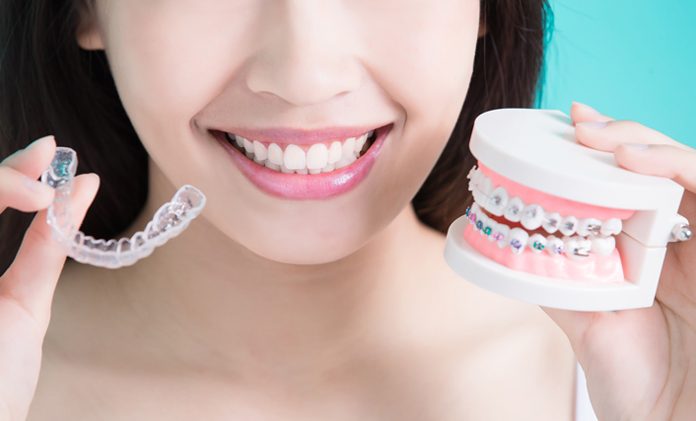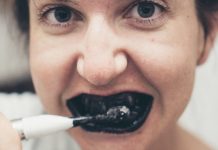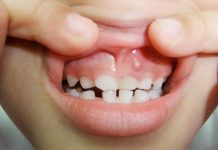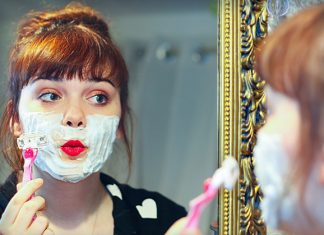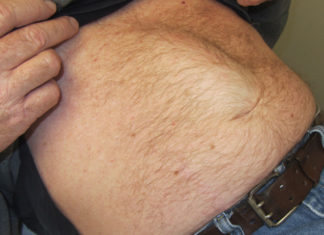Dentures, commonly called false teeth, are fitted as a prosthesis in place of the missing teeth. They are usually made of acrylic, or nylon or even metal. One can wear fake teeth as a replacement for only a few teeth or all of them. They are appropriately placed and fitted over the gums.
Dentures not only replace the hollow gaps between each tooth but also come with several benefits. For example, it can improve a person’s speech, enhance the capabilities of eating, and boost the self-confidence and esteem of a person. Moreover, false teeth prevent the face from sagging and act as a protection to the other teeth.
Inadequate and improper dental care or periodontal issues over a long period of time can weaken gums to such an extent that they can no longer hold the teeth in place. Replacing damaged or missing teeth with dentures can help to improve the smile also and make one look good and presentable.
Dentists are there to guide you with the best type of false teeth suitable for you. You may require a full set of fake teeth, a bridge or only one or two teeth.
Kinds of False Teeth
There are several types of false teeth available. But all require to be properly fitted so that they can match your teeth’s shape, colour, and size. The fitting is done by a specialist known as a prosthodontist or even by a general dentist. Let us look at the various types of dentures.
Partial Dentures
Partial dentures can only be used when there are some healthy teeth present. Partial dentures are clipped with the remaining healthy teeth. Generally, these clips are visible when you open your mouth or talk but can be hidden if made in a material that resembles the tooth colour.
Full Dentures
Full dentures are generally used if you have lost all the other teeth due to injury, periodontitis, infection, or other medical issues. These false teeth are attached to a plate that sits on your gums.
The plates and gum fittings are made from either acrylic or metal that matches your gum colour. So usually, they are not that visible.
False teeth adhesive are used to keep your dentures fitted properly.
Removable Dentures
Removable dentures have been in use for ages and have been the leading solution to such teeth-related issues. You can call it a traditional method, and it also comes with the added advantage of being easier to clean.
However, they also have a disadvantage. Removable dentures can accidentally slip out. This is the reason why dentists suggest that you should avoid sticky, hard or chewy food as they can force the teeth to come out of their place.
Removable dentures use false teeth adhesive to hold the teeth in place. Removable dentures generally do not last more than five years and require to be replaced.
Full and particle dentures are comparatively cheaper than removable dentures. Remember, the more you spend, the better and more comfortable dentures you will get. The well-fitted dentures can seem expensive, but it is worth it. The price range usually varies based on the materials used to fix the artificial teeth, the number of teeth required, and the plates’ names. (Lower and Upper)
Flexible Dentures
Flexible dentures are a better alternative to traditional removable dentures. Though flexible but they are equally durable and comfortable to wear.
Flexible dentures use clear and almost transparent resins that match the colour of the gum. Therefore, they do not need visible clips as partial dentures do.
Moreover, flexible dentures are lighter and less bulky in the mouth. They can last for 5 to 8 years at a stretch. This type of denture is the costliest of all the methods. But, this method can only be used for partial false teeth or dentures.
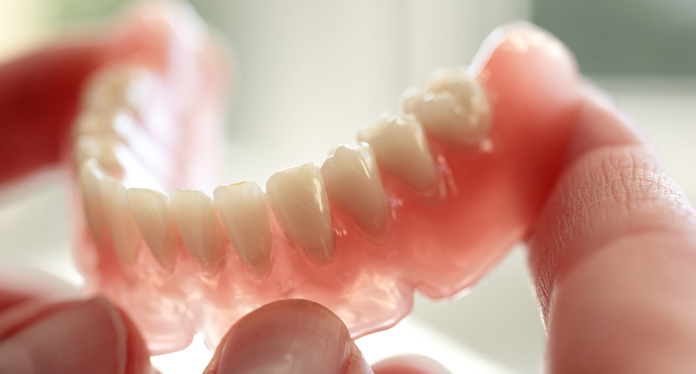
Maintenance of False Teeth
It is essential to maintain oral hygiene even if you are wearing artificial teeth as our mouth carries germs and are prone to have bacteria.
Your dentist will suggest the best way to clean the artificial teeth depending on the type of false teeth you wear.
When you brush your teeth at night, you can easily remove the partial dentures for better cleaning. Cleaning solutions are also available to clean the teeth effectively.
False teeth need different solutions based on the materials they are made out of. Do not bend them and avoid any damage to the clip while cleaning them. Soak your set of false teeth in the solution overnight to prevent them from drying out.
Before you put them back, rinse the solution and attach it in place. It would help if you also kept in mind to avoid certain types of food and drinks.
Avoid beverages, especially if they are too cold or hot. Chewy, hard and sticky food can affect your false teeth as it would change anyone’s natural teeth with frequent consumption of such food items.
Adverse Effects of False Teeth
Initially, when you start using artificial teeth, you may notice an increase in the saliva content in your mouth. However, with time, it gets normal as your mouth gets adjusted to the new addition.
Some people may even experience a temporary phase of nausea. Initially, you may face difficulty in eating food. Start with soft and liquid foods to get adjusted.
At first, you may face trouble speaking also. But with practice, your speech can speed up. Dentures can sometimes lead to soreness and irritation. Regular gargling with salt water can help to maintain excellent oral hygiene. You may also experience high air pressure when you sneeze or cough. But, in some cases, it has been shown that a sudden blow of air due to coughing or sneezing can dislodge the false teeth. The best way to prevent this is to cover up your mouth while coughing, sneezing or yawning.
It is a good practice to ensure that your teeth are in a proper state from time to time. Take note of the following points when your false teeth require being refit, adjusted or repaired.
- Cracks and chips in the artificial teeth
- Difficulty chewing even after the teeth has been adjusted well
- Removable dentures may fall out or slip out after several years
- Odor from the fake teeth
- A consistent problem with the speech pattern
- Soreness or inflammation at the point where the false teeth are fitted
Alternatives to dentures
In addition to false teeth, other false teeth alternatives are also appealing to many. False teeth are fitted with metal screws that are placed in the jawbone to help instability. You can replace it with a full set of false teeth or go for an implant. Implants are more costly as compared to dentures, but some people prefer implants for a permanent solution.
Veneers help improve the appearance of teeth by placing a porcelain thin layer in the front area of the teeth. However, they cannot replace the missing teeth.
Bridges are another common false teeth alternative to dentures. Bridges are also fake teeth fitted by a dental crown cemented to the neighbouring teeth or the false teeth implant. Bridges are more permanent than removable dentures, and bridges may not require any implant if the adjacent teeth are healthy.
The better you handle your false teeth, the better lifespan it will have. It is always best to consult a doctor to know about any issue regarding fake teeth. Your doctor will guide you in the best way to look after your set of false teeth.

